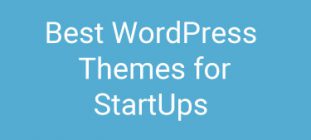
Every e-commerce business should use the assistance of CRM. We spoke with our friends at metrilo a pretty cool customer retention platform about CRM and how it can help any online business to drive more revenues. While a decade ago, it may have been just a simple data-book, today CRM is a powerful tool for e-commerce success. E-commerce CRM is a crucial collaboration for attaining more repeat sales and retain loyal customers.
In the virtual market, your most reliable companion is data analytics. Everything in your e-commerce store is connected through pieces of valuable information. You just need the proper system to gather and analyze it.
Here is where e-commerce CRM comes into play. A proper e-commerce CRM system will navigate through all available metrics and calculate your overall effectiveness. You can use these evaluations to fix existing problems and implement new CRM tactics to your e-commerce business.
Now, without further ado, let’s dive into some of the key benefits of e-commerce CRM for your online business.
Connecting your team with e-commerce CRM

Every successful business owner knows that a company is as good as its core components. In your case, this means you and your trusted team of professionals. However, even the biggest companies encounter struggles with team-communication once in a while.
Skype, Viber, and such services are useful, but they don’t communicate with other pieces of software. To solve this issue, you can use a smart e-commerce CRM with team chat tagging. This will give your entire team access to all important analytics, trends, customer data, etc.
They will be able to exchange information in real-time chats, share files, and discuss relevant data from end to end. This, on its own, equals more saved time, bigger progress, and enhanced productivity.
Managing tasks via e-commerce CRM
As goes for any e-commerce business, project management is crucial for success. Usually, management and CRM software are two distinctively different entities. With the power of e-commerce CRM software, you can merge them into an incredibly powerful service.
Responsive e-commerce CRM systems let you create whole lists of tasks for your team members. They can tag, assign tasks and due dates to each other. This form of self-management creates a more effective team environment. In addition, it denies the need for additional management software and improves team accountability.
Defining customer trends with the right CRM

It is a fact that you can gather data from all of your stores. You can even drive it to a certain platform, and analyze it afterward. But this leaves a certain problem with your e-commerce business communication. All of your sales channels exchange information, but they don’t talk to each other accordingly.
If you resort to such method of analytics, you need to invest more in signal/analytical software. Your other option will be culling information and grouping it after for an easier analysis. Both of those are pale contestants to what a powerful e-commerce CRM system can do.
With e-commerce CRM, you can connect all sales channels. This way, you will gather information at maximum efficiency for an immediate analysis. Furthermore, you will be able to track customer trends, return activity, purchase behavior, costs/profits levels, and lead origination sources.
E-commerce CRM enables a deeper view into the Analytics ocean
With simple analytics systems, you can look at information for a defined period of time. You can check sales, dating back a year or more, but you don’t see the essentials. You cannot track the exact customer who bought the item. There is no information on why and when your customers are active.
You also lose on data, regarding average order value, the frequency of return purchases, social media opinions, and means of retargeting. All of those are clouded unless you use a well-developed e-commerce CRM system.
To put it simply, most sales channels only give you raw purchase information. And you need much more to analyze your customer base and develop your customer retention strategies. E-commerce CRM systems gather every bit of information, so you could create various campaigns for your customers.
Be it targeted sales campaigns, optimization of channels, or even determined conversion funnels, you can access it through e-commerce CRM. If you cover all possible variations in your e-commerce business, you will acquire better conversion rates, fewer cart abandonment and, of course, fewer returns.
Defining Leads for a better e-commerce business

As you may know, leads have many faces. For some companies, they are a contact with a certain prospective buyer. For others, they can be just any sales contact. No matter the case, leads are essential for the growth of your e-commerce business.
A flexible e-commerce CRM presents you with various types of leads:
- Organic online leads
- Newsletter signup leads
- New customer leads
- Social leads
- B2B leads
The knowledge of their appearance in your online pool is important for future success. You can track how you engage them, how you nurture them, and how you will retain them for excepted revenue rise.
A strong e-commerce CRM enables better assessment of leads. It can tell you which step to take in order to succeed with a defined lead. Close the sale, attract repeat business, earn a loyal customer. Sounds simple, but it isn’t always that way. However, it can be, if you are using the right CRM for your stores.
Sell towards powerful trends with CRM for e-commerce
Trend analytics is sometimes underestimated, but it is key to a successful business. E-commerce CRM lets you track all important data and analyze buyer’s trends. You can gather information about repeat customers of a certain product. Afterward, you can use this calculation for future sales campaigns.
With effective e-commerce CRM, you can collect and organize sales data to define purchase trends, customer habits, shipping preferences and much more. You can even specify the trends by seasonality factor and increase your sales over the year even more.
E-commerce CRM shows which products are bought the most during a certain period of time. When they sell, how they sell, to whom they are sold. These questions are enough for a backbone of a profitable sales campaign.
This lets you align your products and offerings. You can also target all sales channels in the most efficient manner. Emails, newsletters, online sales – all of them come together to maximize your profits while minimizing your returns.
And what more can a business want from an e-commerce CRM?



















